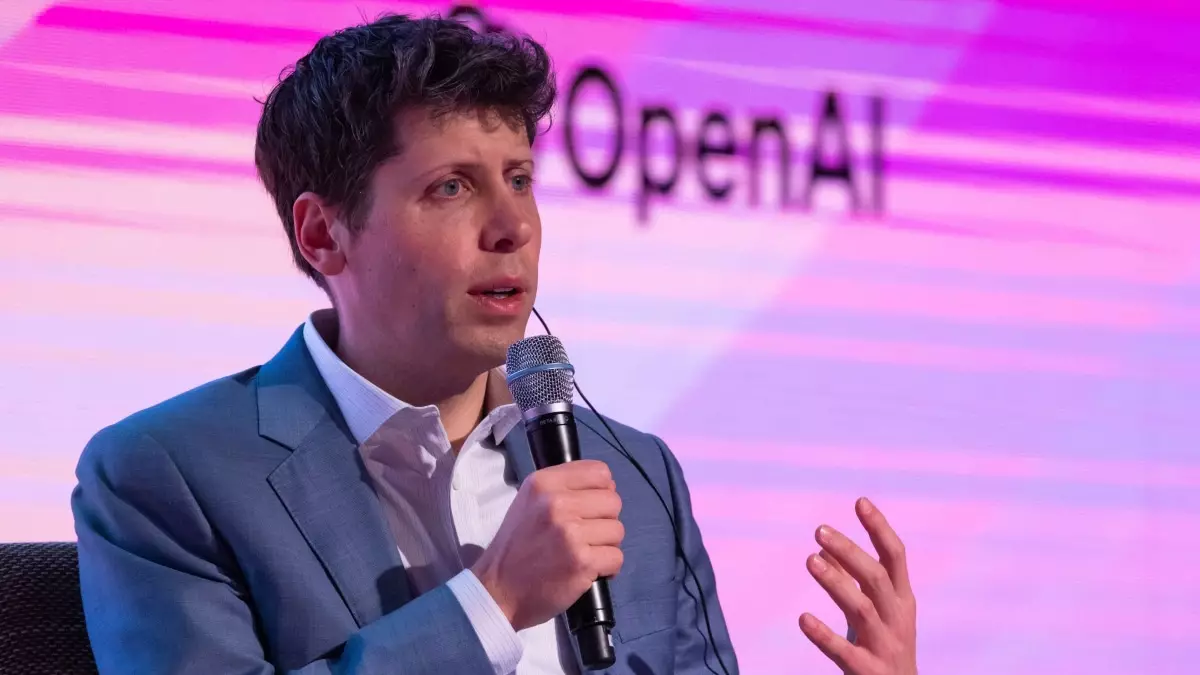In the fast-paced realm of technology, conflicts can often spiral into epic confrontations that capture public attention. The recent legal battle between Elon Musk and Sam Altman over OpenAI is a glaring example of such a clash and reveals the growing divide within Silicon Valley. The stakes are monumental, not just for the two billionaires involved but for the future of artificial intelligence itself. The scheduled trial on March 16, anticipated to be a battleground of ideas and allegations, underscores the profound implications of this rift.
While Musk’s challenge to Altman’s plans of transitioning OpenAI from a nonprofit organization to a for-profit enterprise might seem like a mere corporate disagreement, it resonates with far deeper dilemmas. Musk, one of the founding pillars of OpenAI, now perceives Altman’s moves as a betrayal of their original vision. However, is Musk merely safeguarding a nostalgic view of AI’s ethical foundations, or is he motivated by something more self-serving in his quest for control?
Corporate Ethics and the For-Profit Shift
OpenAI’s switch to a for-profit model raises ethical questions that stretch beyond the immediate interests of Musk or Altman. At its inception, OpenAI was rooted in a charitable understanding of artificial intelligence, emphasizing safety and accessibility over profits. Yet, when presented with the financial allure of major investment firms, it opted to embrace the capitalist structures it once sought to challenge. This evolution brings to light the tension between financial sustainability and ethical responsibility.
Critics argue that the transition to a profit-driven model undermines OpenAI’s initial mission to build safe AI for humanity. On the other hand, advocates of the shift claim that without substantial funding, any ambition to tackle the significant challenges posed by AI would be impractical. This line of reasoning begs one crucial question: can a balance be struck between sound business practices and altruistic endeavors in technology? Or are we witnessing an inevitable slide towards prioritizing profit over principle, as seen in countless industries before?
Musk’s Counter-Attack: A Personal Vendetta or a Passionate Defense?
Musk’s motivations in this legal showdown deserve scrutiny. While it’s easy to view him as a passionate defender of AI ethics, it is crucial to recognize the potential personal stakes involved. After parting ways with OpenAI and launching xAI, a competitor, one cannot help but ponder whether his actions stem from a genuine concern or a desire to undermine a rival that has thrived in his absence.
Altman’s counterarguments lean heavily on claims of Musk’s ulterior motives, suggesting that the legal challenges are an attempt to stifle a successful competitor. The irony here is palpable, considering Musk once advocated for safety in AI, yet might be impeding other attempts to innovate in the name of self-interest. If there is one lesson to take from this saga, it is that the line between altruism and ambition often blurs, leading to complex battles that can redefine the landscape of entire industries.
Impact on the Future of AI Innovation
This upcoming trial could produce reverberations that extend far beyond Musk and Altman’s personal vendetta. The outcome will undoubtedly influence the shape of AI governance in the United States and perhaps even globally. As OpenAI gears up for a financier-driven future, other tech companies will be watching closely, wondering whether to follow suit or maintain a commitment to ethical AI.
Moreover, how the public perceives this clash could dictate future funding and development strategies across the industry. If investors conclude that AI firms ought to prioritize profit over safety, we may soon find ourselves in an unregulated race for AI supremacy—one fraught with ethical ambivalence and potential disaster.
In a world where technology continuously reshapes our society, these battles reflect not only the personalities involved but also the overarching values we uphold as a global community. As Musk and Altman face off, the public has a unique opportunity to reflect on what principles we wish to guide the inevitable advancements in artificial intelligence. Technology should be a formidable tool for progress, but when ambition clouds ethical judgment, the consequences could ripple for generations.



Leave a Reply